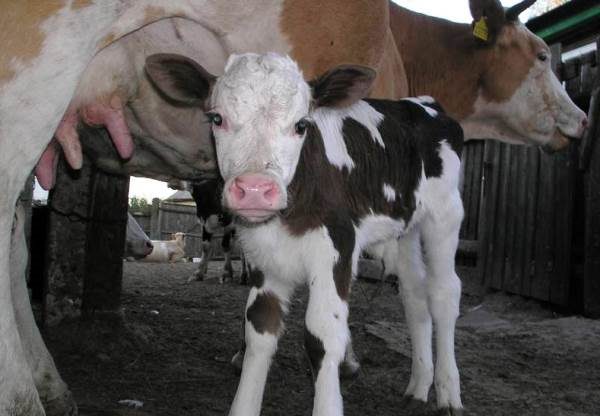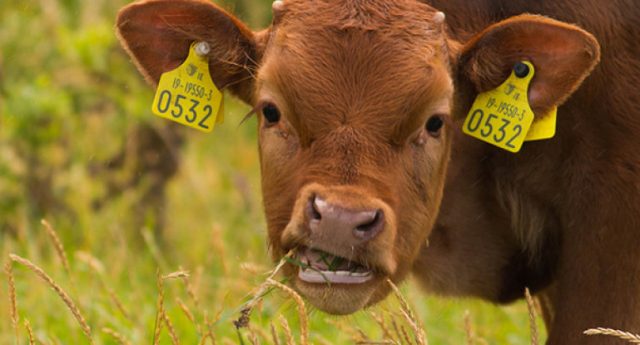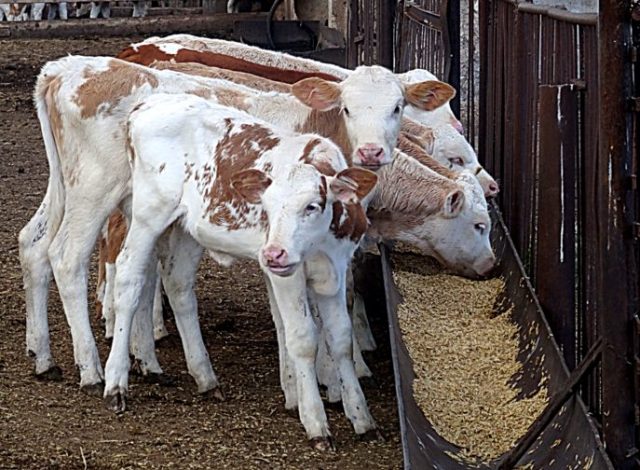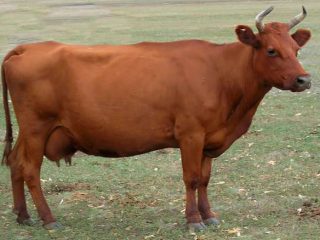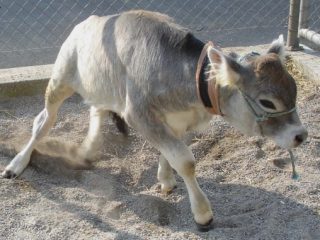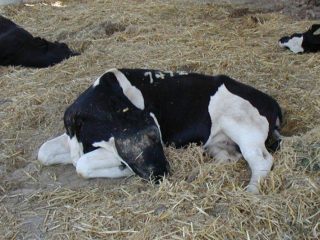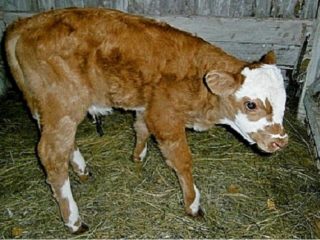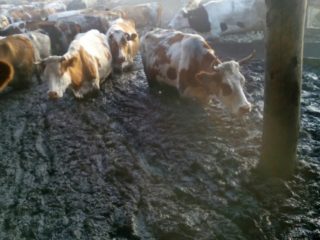Content
Many people who are far from communicating with animals may express bewilderment as to whether it is worth taking so seriously what to name a calf. Especially on large livestock farms, where the total number of heads of bulls and cows can range from several dozen to several hundred and thousands. But research by English scientists has confirmed the fact that on farms where, along with digital designations, each cow has its own nickname, all other things being equal, it is possible to obtain 54% more milk. And the character of a bull is often determined by exactly how it was named. Therefore, the names of calves do not at all indicate a frivolous approach to their rearing, but rather, on the contrary, speak of interest and love for animals, as well as a desire to take care of them.
Features of choosing the name of calves for home and breeding
In a household or homestead where there are only one or a few cows or bulls, the choice of name for calves becomes especially important. After all, for many, a cow is not only livestock, but also a real breadwinner. Many even perceive her as a family member.
It is necessary that the nickname be easy to pronounce, be liked by all family members, and be somehow associated with its owner or owner.
For breeding, there is also a mandatory rule that must be followed when choosing a calf's name. After all, his nickname is entered on a special card with a record of his family tree going back several generations. When a heifer is born, her name must begin with the letter of her mother's name. At birth, a bull is named so that the first letter coincides with the one with which the name of the bull, his father, begins.
Sometimes, in small private farms, especially where artificial insemination is practiced, it is not always possible to find out the name of the bull father of the calf. In this case, it is called so that the nickname also begins with the first letter of the name of the mother cow.
Types of names for calves
Despite all the modern and advanced animal care technologies, as well as the use of high-quality feed and additives, nothing can replace the affectionate and attentive attitude of humans for cows and calves. After all, it has been noticed that with a caring attitude towards animals, not only does milk yield increase, but the milk itself becomes more nutritious and tasty, and the cow or bull gets sick less. There are many cases where a premature and practically non-viable calf was born. And only the love, care and attention of his owners allowed him to survive and become a full-fledged bull, the leader of a herd or a high-yielding cow.
And the nickname given to the calf, albeit indirectly, already indicates a person’s concern for the animal. Especially if it is chosen with soul.
It is advisable to accustom the calf to its name almost from the first days. To do this, the nickname is pronounced many times in a variety of situations.When pronouncing a calf's name, gentle and gentle intonation is especially important. The regularity of using nicknames is also important.
Both calves and adult animals feel very well both their nicknames and the intonation with which they are pronounced. After all, cows and bulls do not have very good eyesight, but their acute hearing is enviable. They clearly distinguish halftones, as well as sounds of even high frequencies (up to 35,000 Hz) and actively respond to them. They may be frightened by sharp or unusual sounds. And, on the contrary, even in a stressful situation they will behave relatively calmly if there is a person nearby who encourages them with their usual intonation, voice and uses their usual nickname.
To choose the most suitable name for a calf, you need to consider many factors.
The following bindings for the chosen nickname are most often used:
- Focusing on the external data of the calf: size, shape, coat color (Krasulya, Ushastik, Curly, Chernysh, Borodan, Ryzhukha, Belka).
- In accordance with the name of the month in which the calf was born (Mika, Dekabrinka, Marta, Oktyabrinka).
- Sometimes the time of day or weather conditions at the time of birth are taken into account (Night, Smoke, Dawn, Dawn, Snowflake, Wind, Hurricane).
- Nicknames associated with representatives of the plant kingdom (Chamomile, Rose, Poplar, Buttercup, Birch, Malinka) look attractive.
- Sometimes they use geographical objects of their area: names of cities, rivers, lakes, mountains (Marseille, Danube, Karakum, Ararat).
- Often the nickname is associated with the breed to which the calf belongs or with the geographical names of the country that produced the breed (Holstein, Kholmogorka, Simmentalka, Bern, Zurich).
- If possible, it is good that the nickname reflects the character traits of the calf (Tender, Veselukha, Igrun, Brykukha, Shaitan, Tikhon, Volnaya).
- The names of book or cartoon characters are often used as nicknames (Gavryusha, Vinnie, Fedot, Countess, Znayka).
- Those who are friends with a sense of humor can use funny nicknames like (Dragonfly, Ryumochka, Masyanya).
- The traditional names of calves, used for a long time, are universal (Mistress, Nurse, Burenka, Daughter, Murka).
- Calves are also often named after the characters of their favorite TV series (Luis, Rodriguez, Alberto, Barbara).
When choosing the most suitable nickname for a calf, you should be aware that in some mysterious way it influences the fate and character of the pet. After all, this mechanism has long been noticed in human names, especially if the child is named after some relatives. A grown child can repeat the fate or character of the person after whom he was named. Also with animals. Therefore, choosing a name for a calf is a very responsible matter that must be approached with the utmost seriousness.
What to name a bull
Below is a list of possible bull names, arranged in alphabetical order for convenience.
- Adam, Adric, August, Arnie, Arnold, April, Ald, Afonya.
- Barmaley, Browser, Bravy, Bambi, Belyash, Banderas, Bern, Brown, Bodya, Bublik, Bycha, Butler.
- Varyag, Volny, Venka, Vors, Willy, Vyatik, Raven.
- Gavryukha, Hamlet, Count, Guy, Gord, Hudson.
- Dart, Rain, Davon, Wild, Daur, Don, Diego, Danube, Doc, Dnieper, Domusha, Dymok, Devil.
- Jaeger, Emelya, Ermak.
- Georges, Zhuran, Zhorik.
- Zeus, Starry, Winter, Zigzag, Zurab.
- Frost, Iris, June, July, Irtysh, Ignat, Iron.
- Cedar, Strong, Prince, Cord, Red, Fireweed, Courage, Kuzya, Kruglyash, Krokha.
- Leo, Lizun, Luntik, Lyubchik, Leopold, Lothar.
- Martin, Marquis, Major, Mars, Morozko, Mezmay, Miron.
- Narin, November, Nero, Nurlan.
- Naughty, October, Gluttony, Orange.
- Paris, Motley, Pate, Peugeot, Peter, Pluto, Piebald, Obedient.
- Dawn, Romeo, Rosemary, Radan.
- Sarat, Saturn, Spartak, Sultan, Sema, Sivka, Sivy, Gray, Smurf, Saltan.
- Tarzan, Taurus, Tiger, Quiet, Tur, Fog, Fatty, Turus.
- Umka, Ugolek, Uranus.
- Pheasant, Torch, Theodore, Fram.
- Brave, Brave, Kholmogor, Christopher, Good.
- Tsar, Zurich, Caesar.
- Cheburashka, Chizhik, Cheboksary.
- Nimble, Shaitan, Sharon.
- Sherbet.
- Eden, Elbrus, Elite.
- Jupiter, Yurkiy.
- Yarik, Yakov.
What to name a chick
For chicks, there has traditionally been an even more voluminous list of nicknames, so choosing something suitable is not difficult.
- Ada, Asia, Alaska, Alice, Altaika, Assol, Aphrodite, Artemis, Ara, Arsaya, Azhura.
- Butterfly, Birch, Burenka, Belyashka, Baranka, Cowberry, Berta, Bella, Bonya.
- Varya, Vanessa, Veselukha, Vetka, Venus, Cherry, Varta.
- Dove, Blueberry, Gazelle, Loon, Glasha, Geranium, Countess, Jackdaw, Muddy, Gerda.
- Dana, Diana, Dekabrina, Dorota, Dashka, Julieta, Dina, Dymka, Dusya, Oregano.
- Eurasia, Eva, Blackberry, Enichka, Elnushka, Eremia.
- Zhdanka, Josephine, Pearl, Priestess, Zhuzha, Giselle.
- Zarya, Zabava, Zvezda, Zvezdochka, Zorka, Zosya, Zulfiya.
- Spark, June, Toffee, Irga.
- Kalina, Baby, Prince, Krasulya, Curly, Doll, Crown, Queen.
- Weasel, Laura, Legend, Lavender, Linda, Lyra, Lazy, Lily, Lyubava, Lala.
- T-shirt, Baby, Cutie, Cloudberry, Dream, Muse, Murka, Madame, Motya, Mumu, Munya.
- Naida, Nochka, Nerpa, Nora, Outfit.
- Octave, Ovation, Oktyabrina, Olympia, Ophelia, Osinka, Ode.
- Parisian, Pobeda, Podruzhka, Polyanka, Pava, Pushinka, Pyatnushka, Pyshka, Bee.
- Chamomile, Rimma, Rose, Runya, Ronya, Mitten.
- Soraha, Silva, Severyanka, Siren, Brave, Lilac, Dark-skinned.
- Taisha, Tina, Mystery, Tasara, Quiet, Quiet.
- Smart girl, Luck, Joy.
- Thekla, Violet, Flora, February, Meatball, Feva.
- Hostess, Bread, Praise.
- Gypsy.
- Cherry, Chernusha, Roan, Chapa.
- Chocolate, Skoda.
- Bristle, Chirp.
- Elsa, Ella, Elite.
- Juno.
- Bright, Jamaica, Yantarka, Jasper, Yagatka, Janvarka.
What nicknames should you not give to calves?
It has been the case since ancient times that it is not customary for animals, including calves, to be given nicknames associated with human names. Although many do not pay attention to this unspoken rule. But every human name has its own heavenly patron in heaven, and calves, especially bulls, will often sooner or later be taken to slaughter. From a religious point of view, this is more like sacrilege, so you should not tempt fate and God.
In addition, it may happen that among your neighbors or close and distant acquaintances there may be a person with a similar name. This can cause unnecessary resentment and disappointment.
For the same reason, it is not recommended to use names for calves whose names have national affiliations, political connotations or dialectical words. It is better to live in peace with neighbors.
You should also not use nicknames with aggressive notes in sound for calves, such as Buyan, Zlyuka, Stubborn, Aggressor and others. After all, a calf can grow up with a character corresponding to its name, and then the owner will have more troubles in life.
Conclusion
There are a wide variety of names for calves. From a large list, everyone can choose something to their liking. But, having chosen a suitable nickname, you should continue to treat your pet with love and care. Then they will repay with adequate behavior and a large amount of tasty and healthy milk.
